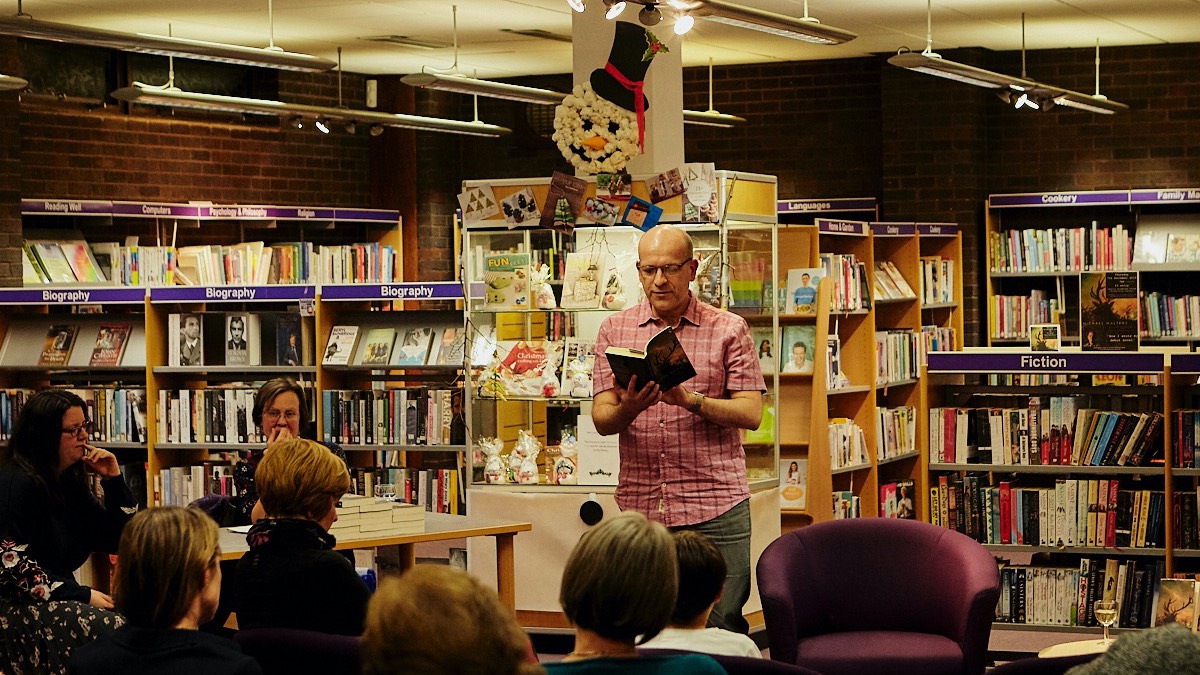
The first shoots of the ideas that would combine to become The Complex appeared way back in November 2012, when I was fascinated by Lars von Trier’s film, Antichrist. I hadn’t watched it, I was too scared of it, but I was reading interviews with Charlotte Gainsbourg about what it was like to work on the film, and I became fascinated with the idea of going into the woods, with actors, as a director, and getting them to do whatever I wanted. I was suffering with writer’s block at the time. To be able to write freely, without censure, in a cabin in the woods on my own internal film set, was an exciting idea. I was crushing the life out of myself with old feelings of shame and inadequacy. Gainsbourg in the interviews made film-making with extreme material feel playful. I wanted some of that.
I didn’t write the first words of the first draft of The Complex for another three years. By this point, in December 2015, I was in the middle of the second year of an MA in Creative Writing at Manchester Metropolitan University. I had been flailing around creatively, with two aborted attempts at a novel on my desktop, but now things were getting serious. For the first time, I had workshops in which I had to present work from my final dissertation, a novel, to a group of my peers and my tutor. I remember reading back through years of notebooks, pulling together strands of thoughts and little sketches, about a cabin in the woods. I also found notes I had made about the psychoanalyst Carl Jung</a>, taken after my mother died in 2014. In working through my grief, I had written about his concept of a complex, in which a person is taken over by patterns of thoughts and feelings so that they act irrationally, with great energy.
I had even written in my notebook that The Complex was a perfect title for a novel. I had forgotten all this, even when starting to write two other novels, but now, when I needed it, the title reappeared. I think I fell into a complex to write the first half of the first draft of the book — after years of not being able to write a longer story, under the pressure of a workshop, with a tutor who I wanted to impress, the words started to come. Three voices — Stefan, Gabrielle and Leo.
It became clear that I needed to find a narrative mechanism that would let me write more fantastical, dream-like sequences, but staying grounded in the emerging location of the story. They appeared organically, as I wrote the draft. Stefan has the Virtual Reality headset. Gabrielle has Art’s drugs. And Leo has whatever is in the place itself.
And I wanted to explore relationships. These characters were parts of myself, and I could bounce them off each other, let them rip. A lot of the fun of writing The Complex came from imagining the scenes as if I were shooting a film. My father introduced me to genre stories very young. He loved mysteries, thrillers, fantasy, science-fiction and horror, in books, television and films. Growing up, our house was totally liberal in what I could read, mostly liberal in what I could watch on TV, but totalitarian in terms of having and expressing feelings. No wonder I had writer’s block. But that’s an entirely different blog post.
When the writing was going well, it felt like I was making a film for myself, perhaps for my father too. Dreams, fantasies and the imagination are all real in their affects. Through Gabrielle I could write about my grief at my mother dying, Stefan about optimism and hope, and Leo about desperation, longing and despair. It felt like important work to be doing — even if it might never be published.
Because the book took almost four years to write, by the end of it I was a different person, and I could look more clearly at the themes. There was grief, yes, but also the problems of intimacy, technology, sanity and reality, family, falling in love, betrayal, addiction, competitiveness, manipulative relationships, affairs, and memory. I’d covered a lot of ground, but organically, without a conscious agenda. The story is driven by the characters. In writing, the themes seemed to follow the characters interests, but if I am the characters, and they are aspects of myself, then I guess these were all my concerns and obsessions.
Anyway, my tutor on the MA was Nicholas Royle, who was also a commissioning editor at Salt. I feel lucky and grateful that it will be published and read. Now I have to write some new characters, in new locations, and find out how my obsessions have changed. It’s like writing myself into existence.
Since I’ve put it like that, I’d better crack on.